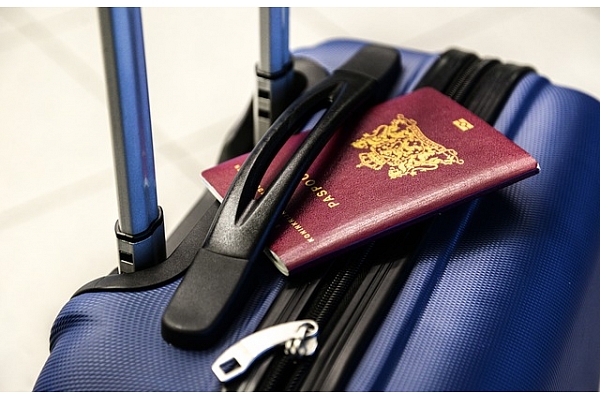Positive year in tourism sector
Sector in brief
• The sector has 1,027 companies whose annual turnover exceeds EUR 145,00, and their aggregate turnover is EUR 1.235 billion, profit – EUR 61 million, while the number of persons they employ exceeds 30,000.
• 35% of the industry’s turnover was in the catering sector (526 companies with an aggregate turnover of EUR 436.759 million), followed by accommodation/lodging and tourism services sector – 34% (275 companies with an aggregate turnover of EUR 422.756 million), and entertainment and sports – 30% (226 companies with an aggregate turnover of EUR 375.786 million).
• Foreign guests spend on average EUR 580 million per year in Latvia. The average stay by foreign guests is 1.4 days, who spend on average EUR 80 per day.
• Latvia as the EU Presidency in 2015 managed to attract 6.8 million foreign travelers, which is by 9.5 percent more than in 2014.
• According to the Latvian official tourism portal www.latviatourism.lv, the TOP 10 tourist destinations in the country are Rīga, Rundāle Palace, Jūrmala, the Gauja National Park, Kuldīga, Turaida Museum Reserve, Cēsis, Liepāja, Daugavpils and Ventspils.
• The tourism sector plans a tourist influx in relation to Latvia’s Centenary celebrations on November 18, 2018, which will include more than 800 culture events that started already in 2017.
Number of tourists growing
During the first 11 months of last year, the number of nights spent by tourists at Latvia’s hotels and other tourist facilities increased by 7.3% against the same period in 2015 to 4.125 million, the Central Statistics Bureau’s data show. The number of nights spent by foreign tourists at Latvia’s hotels and other tourist facilities grew 5.7% year-on-year to 2.845 million in the 11 months of 2016. During the 11 months of last year, Latvia’s hotels and other tourist facilities received 2.153 million guests, up 7.5% against the same period in 2015, with the number of foreign guests growing by 6.4% to 1.473 million. In November 2016, guests spent 269,276 nights at Latvia’s hotels and other tourist facilities, up 6.6% against November 2015, with the number of nights spent by foreign tourists at Latvia’s hotels and other tourist facilities rising by 4.7% to 183,690. In November 2016, Latvia’s hotels and other tourist facilities received 136,787 guests, up 9.3% from the same months a year ago, including 93,252 foreign tourists whose numbers rose 10.1% year-on-year. As reported, during the summer months of 2016 – June, July and August – the number of nights spent by tourists at Latvia’s hotels and other tourist facilities increased by 9% as compared to the same period in 2015, reaching 1.723 million, with foreign tourists spending 1.179 million nights, up 7.3%. During the summer months, Latvia’s hotels and other tourist facilities received 917,500 guests, or 11% more than a year ago. The number of foreign guests grew 9% to 618,700. In 2015, Latvia’s hotels and other tourist facilities provided services to 2.139 million guests, while the number of nights spent by tourists at Latvia’s hotels and other tourist facilities reached 4.11 million.
Russian tourists return to Riga
Russian tourists are gradually returning to Riga, a large part of the tourism and hospitality sector representatives believes this is one of the most important tourist groups. In total, in the first quarter of 2016, the number of tourists in Riga hotels and other tourist facilities increased by 6%, in the second quarter the rise was 4.6%, and in the third quarter the increase was 7.8%. The majority of guests in Riga came from Germany, Russia, Finland, Estonia, the UK, Lithuania, Sweden and Norway.
Focus on quality and development of business tourism
Jānis Vālodze, the head of the Association of Hotels and Restaurants of Latvia, noted that the sector has been focusing on increasing the service quality. For example, Riga in 2015 ranked first in the segment of four-star hotels, outpacing such large cities as London, Paris, Dubai. At the same time, the hotel sector players, when improving the quality, should also focus on profit management and improvements in this area. The sector also has to focus on promoting destinations because Latvia still has low recognition on the world’s tourism map. However, thanks to the affordable price of the product, a customer in Riga expects much less for the price than, for example, he would expect in Le Bristol hotel in Paris, paying EUR 1,200 per night. In total, the tourism sector should focus more on business tourism because a business tourist on average spends ten times more than a traveler. Even though there is not yet a large convention center in Latvia, there is an option to organize small and medium-size conferences. Also, a discussion has been launched on development of a Convention Bureau whose main goal would be to promote Latvia as the destination for business trips, conferences and conventions.
5-10% growth expected
The tourism sector in Latvia in 2017 might grow by some 5-10% compared to last year, said Inga Kavaca, President of the Latvian Association of Travel Agents and Operators. The forecast is based on outbound tourism trends because it is difficult to predict inbound tourism as it depends on the events in the world. Meanwhile, new market players are not expected to enter the sector this year as the market already is saturated. At the same time, this market might be too small for the large European tourism companies to make them interested in entering Latvia. The expert said that in 2016 the tourism sector in Latvia saw a 5% growth, according to turnovers of the association’s members.
Lido expands in Tallinn, opens branches in Berlin
Lido in 2016 invested EUR 3 million in two Ķirsons restaurants and a plant in the German capital Berlin. The company also opened a third Lido in Estonian capital Tallinn, investing EUR 1.2 million. The company’s long-term strategy provides for a possible entrance in the Scandinavian market. Meanwhile, in Germany the company plans to develop a chain with more than ten restaurants in the coming couple of years. 70% of employees of the Lido bistro in Germany are from Latvia and 30% from Germany. There is also a small share of Latvians already living in Germany among the employees.
Olympic Entertainment Group's gambling revenue in Latvia up 17.7% in 2016
The gaming revenue of the Baltic largest gambling company Olympic Entertainment Group (OEG) in Latvia grew 17.7% to EUR 60.6 million in 2016. Among all countries where OEG runs the business, Latvia demonstrated the highest turnover and the highest rise year-on-year. Also in the fourth quarter of 2016, gaming revenue in Latvia was the highest among all OEG markets – EUR 16.4 million or by 16.7% more than in October-December 2015.
Increasing gambling taxes
Despite objections by business organizations, Saeima adopted a bill that raises the gambling taxes and duties – the tax on each gambling machine was raised from EUR 3,141.7 to EUR 3,204, and on each gaming table from EUR 17,279.36 to EUR 18,000. The Latvian Gaming Business Association had put up with the decision, voicing hopes that the next government will not lay obstacles to the gambling sector and will not "surprise" it with unpredictable tax changes.





